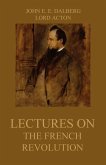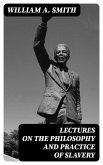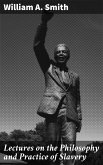In "Lectures on the French Revolution," John Emerich Edward Dalberg Acton, Baron Acton, meticulously examines the socio-political upheaval of 1789 through a lens that combines historical analysis with moral philosophy. Acton's prose is characterized by its erudition and clarity, inviting readers into a nuanced exploration of the causes and effects of the Revolution. His insights into the moral complexities surrounding freedom and authority are set against the backdrop of Enlightenment thought, positioning this work as a critical inquiry into the broader implications of revolutionary ideas and their consequences on human liberty. Baron Acton, a prominent historian and a vocal advocate of civil liberties, was profoundly influenced by the turbulent political landscape of his time. His deep commitment to understanding the interplay between power and morality stems from his background in both British history and Catholicism, which shaped his views on governance. Acton's experiences in the 19th-century political arena, marked by the revolutions across Europe, prompted him to reflect on the triumphs and tragedies of the French Revolution, making his evaluations both timely and timeless. "Lectures on the French Revolution" is an indispensable read for those seeking to grasp the intricate dynamics of a pivotal moment in history. Acton's thoughtful examination not only enriches one's understanding of the Revolution itself but also serves as a conservation on the enduring themes of justice, power, and ethics, proving relevant in today's socio-political discourse.
Dieser Download kann aus rechtlichen Gründen nur mit Rechnungsadresse in A, B, BG, CY, CZ, D, DK, EW, E, FIN, F, GR, H, IRL, I, LT, L, LR, M, NL, PL, P, R, S, SLO, SK ausgeliefert werden.









